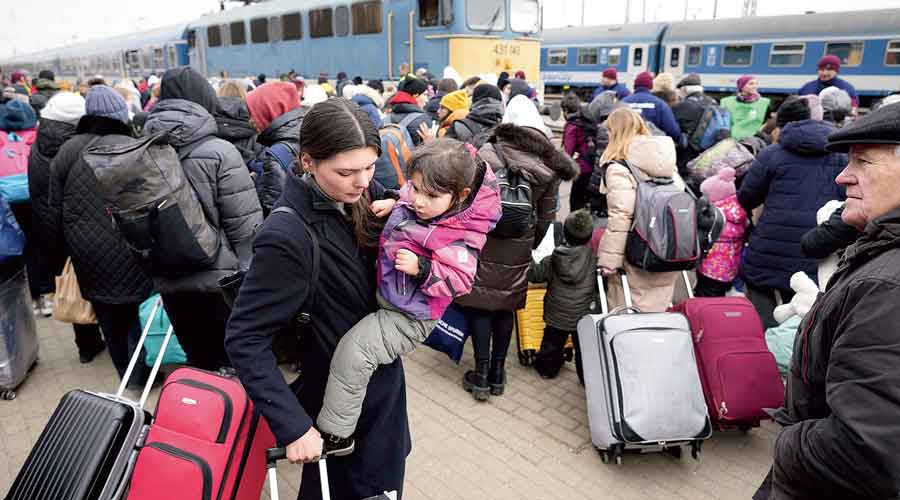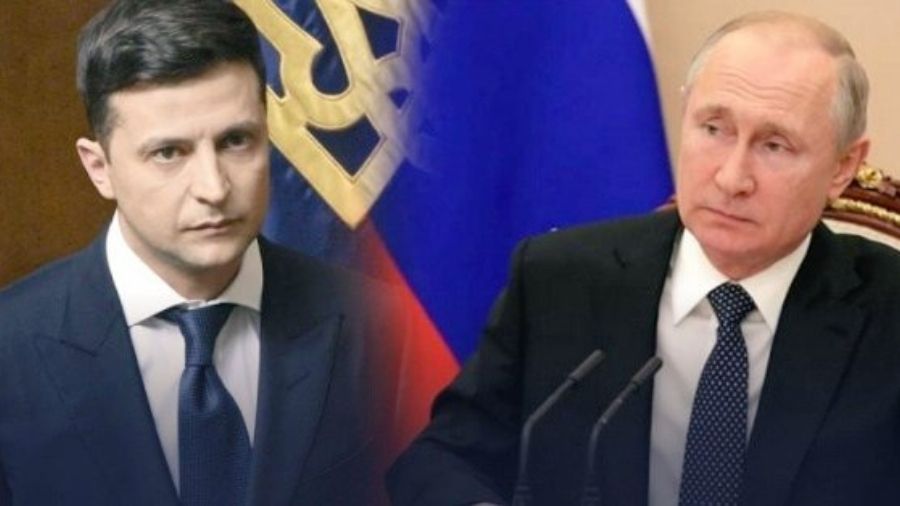In a bunker near her home in Ukraine’s Kharkiv, 5-year-old Eva Zozulia learned how to distinguish the sound of Ukrainian and Russian artillery before she and part of her family fled the city.
The first only produced loud “booms” but when the Russians struck, the whole building trembled.
“It was scary,” Eva said in a phone call from the train station in the western city of Lviv, where she had spent the previous night, sleeping in a restaurant with her mother and older brother.
One million children have fled Ukraine in less than two weeks of war, James Elder, a spokesman for Unicef, said on Tuesday, calling it “a dark historical first”.
Since the start of the Russian invasion on February 24, two million people have fled Ukraine, according to the United Nations — more than those who left Syria in the first three years of the civil war there.
“We have not seen a refugee crisis of this speed and scale since World War II,” said Elder, “And this is a children crisis.”
About one in seven Ukrainian children have already left the country. At least 29 have been killed, by bombings or by mortar shells, in the street as they tried to escape, a figure that humanitarian groups say is almost certainly an underestimate.
The Ukrainian government on Tuesday accused Russian forces of shelling a humanitarian corridor that Moscow had promised to open to let residents flee the besieged port of Mariupol as the civilian death toll in the conflict mounted.
The UN human rights office said it had verified 1,335 civilian casualties in Ukraine, including 474 killed and 861 injured, since the invasion kicked off on February 24. But the true toll was likely to be higher, it said.
Babies have been born in underground bomb shelters. In some areas, families are living without electricity and water and as it is always the case in conflict, children have been overexposed to the cold, to disease, and to hunger and thirst.
Catherine M. Russell, the executive director of Unicef, called the situation of children in Ukraine “a moral outrage”, and said countless of them were traumatised.
Many of the children fleeing are unaccompanied, the UN said. Their parents or family members stayed in Ukraine, or were killed, Elder said.
About 100,000 children, half of them with disabilities, are living in institutions and boarding schools that are at risk, as schools, orphanages, homes and hospitals have all come under attack, the UN said.
Vyacheslav Grynevych, the executive director of Caritas-Spes, a Ukrainian Latin Catholic charity, said the group took in 200 children with their mothers at a centre in the ski resort of Yablunytsia in western Ukraine.
Grynevych said in a phone call from Yablunytsia that while many orphans had left Ukraine, his organisation was still trying to coordinate the evacuation of many of them who were still in bomb shelters around the country, sometimes alone.
Children have also shown great resilience, from singing in bomb shelters to undertaking trips alone to join relatives abroad. Vardkes Arzumanyan, a restaurant owner who has been distributing meals at the Lviv train station, said he saw a child tearing the piece of the cardboard he was sitting on, to offer part of it to a stranger.
Most of the Ukrainian refugees in other countries are women and children, because men between the ages of 18 and 60 are not allowed to leave.
But to some mothers, their 18-year-old sons are still children.
Eva Zozulia’s brother Kyryll, a high school student, turned 18 on March 1, a day before the family fled Kharkiv.
“He is not prepared,” said Irene Zozulia, Eva and Kyryll’s mother. “The only way in which he could help is go in front of a Russian soldier and say ‘kill me.’”
New York Times News Service and Reuters












